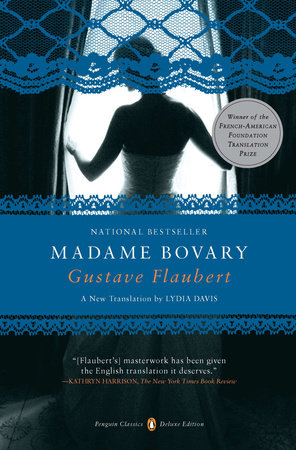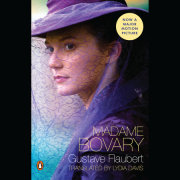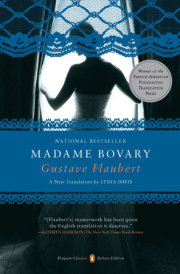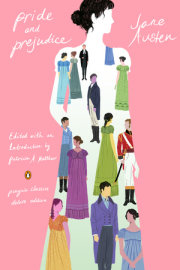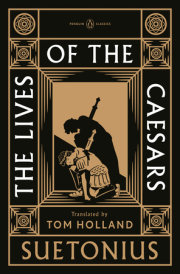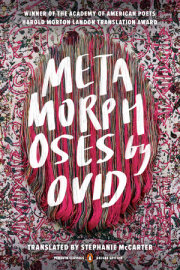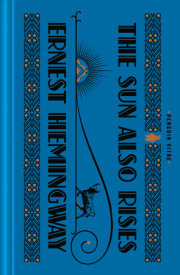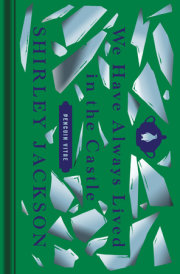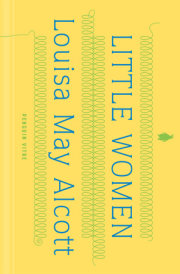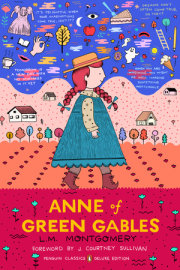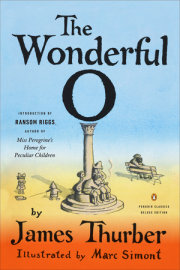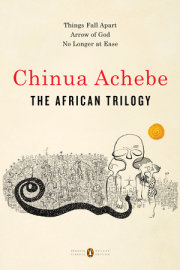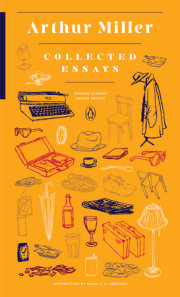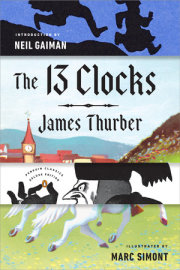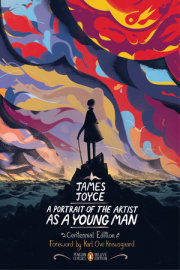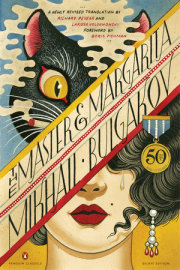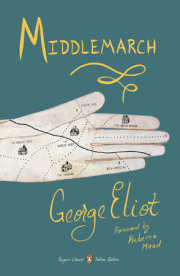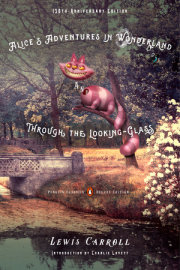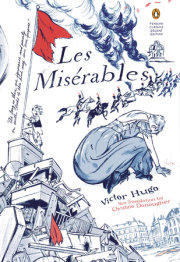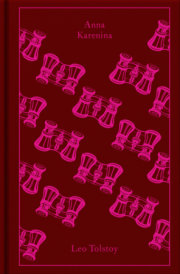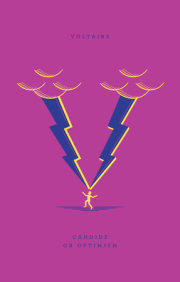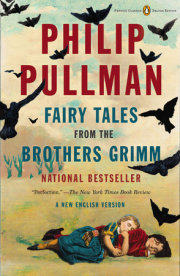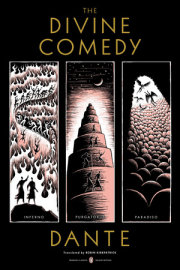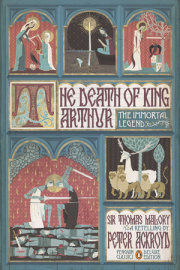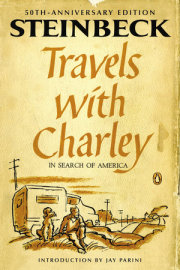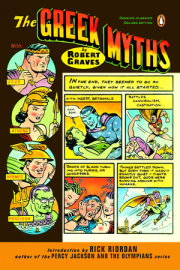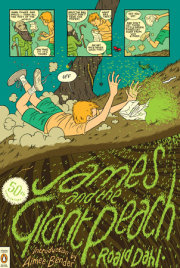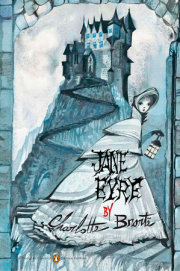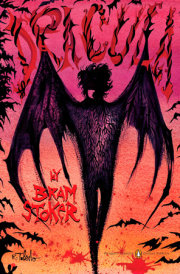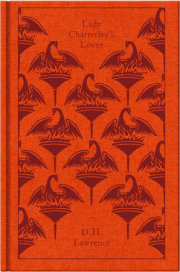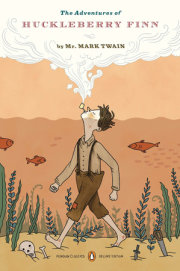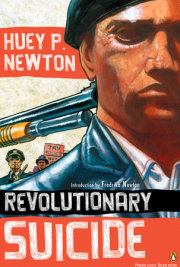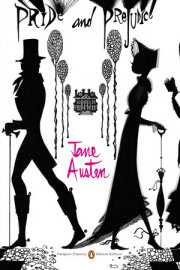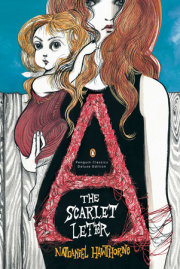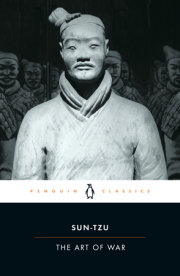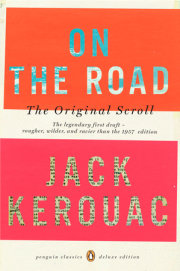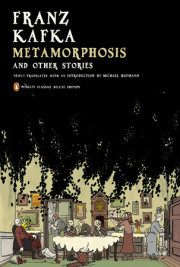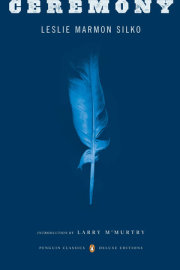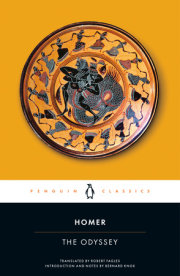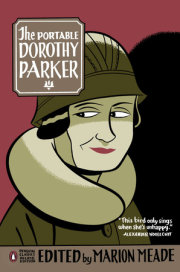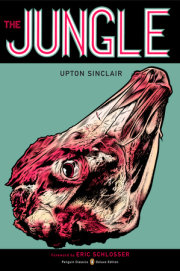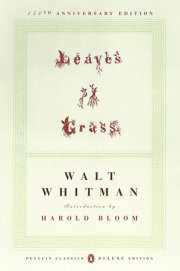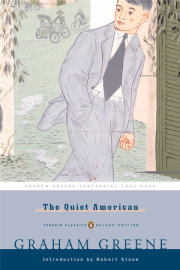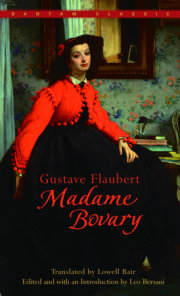Part One
We were in study hall when the headmaster walked in, followed by a new boy not wearing a school uniform, and by a janitor carrying a large desk. Those who were sleeping awoke, and we all stood up as though interrupting our work.
The headmaster motioned us to sit down, then turned to the teacher and said softly, "Monsieur Roger, I'm placing this pupil in your care. He'll begin in the eighth grade, but if his work and conduct are good enough, he'll be promoted to where he ought to be at his age."
The newcomer hung back in the corner behind the door, so that we could hardly see him. He was a country boy of about fifteen, taller than any of us. He wore his hair cut straight across the forehead, like a cantor in a village church, and he had a gentle, bewildered look. Although his shoulders were not broad, his green jacket with black buttons was apparently too tight under the arms, and the slits of its cuffs revealed red wrists accustomed to being bare. His legs, sheathed in blue stockings, protruded from his yellowish trousers, which were pulled up tight by a pair of suspenders. He wore heavy, unpolished, hobnailed shoes.
We began to recite our lessons. He concentrated all his attention on them, as though listening to a sermon, not daring even to cross his legs or lean on his elbow, and when the bell rang at two o'clock the teacher had to tell him to line up with the rest of us.
When we entered a classroom we always tossed our caps on the floor, to free our hands; as soon as we crossed the threshold we would throw them under the bench so hard that they struck the wall and raised a cloud of dust; this was "the way it should be done."
But the new boy either failed to notice this maneuver or was too shy to perform it himself, for he was still holding his cap on his lap at the end of the prayer. It was a head-gear of composite nature, combining elements of the busby, the lancer cap, the round hat, the otter-skin cap and the cotton nightcap--one of those wretched things whose mute ugliness has great depths of expression, like an idiot's face. Egg-shaped and stiffened by whalebone, it began with three rounded bands, followed by alternating diamond-shaped patches of velvet and rabbit fur separated by a red stripe, and finally there was a kind of bag terminating in a cardboard-lined polygon covered with complicated braid. A network of gold wire was attached to the top of this polygon by a long, extremely thin cord, forming a kind of tassel. The cap was new; its visor was shiny.
"Stand up," said the teacher.
He stood up; his cap fell. The whole class began to laugh.
He bent down and picked it up. A boy beside him knocked it down again with his elbow; he picked it up once again.
"Will you please put your helmet away?" said the teacher, a witty man.
A loud burst of laughter from the other pupils threw the poor boy into such a state of confusion that he did not know whether to hold his cap in his hand, leave it on the floor or put it on his head. He sat down again and put it back on his lap.
"Stand up," said the teacher, "and tell me your name."
The new boy mumbled something unintelligible.
"Say it again!"
The same mumbled syllables came from his lips again, drowned out by the jeers of the class.
"Louder!" cried the teacher. "Louder!"
With desperate determination the new boy opened his enormous mouth and, as though calling someone, shouted this word at the top of his lungs: "Charbovari!"
This instantly touched off an uproar which rose in a crescendo of shrill exclamations, shrieks, barks, stamping of feet and repeated shouts of "Charbovari! Charbovari!" Then it subsided into isolated notes, but it was a long time before it died down completely; it kept coming back to life in fits and starts along a row of desks where a stifled laugh would occasionally explode like a half-spent firecracker.
A shower of penalties gradually restored order in the classroom, however, and the teacher, having managed to understand Charles Bovary's name after making him repeat it, spell it out and read it to him, immediately ordered the poor devil to sit on the dunce's seat at the foot of the rostrum. He began to walk over to it, then stopped short.
"What are you looking for?" asked the teacher.
"My ca--" the new boy said timidly, glancing around uneasily."
The whole class will copy five hundred lines!" Like Neptune's "Quos ego" in the Aeneid, this furious exclamation checked the outbreak of a new storm. "Keep quiet!" continued the teacher indignantly, mopping his forehead with a handkerchief he had taken from his toque. "As for you," he said to the new boy, "you will write out 'Ridiculus sum' twenty times in all tenses." He added, in a gentler tone, "Don't worry, you'll find your cap: it hasn't been stolen."
Everything became calm again. Heads bent over notebooks, and for the next two hours the new boy's conduct was exemplary, despite the spitballs, shot from the nib of a pen, that occasionally splattered against his face. He merely wiped himself with his hand each time this happened, then continued to sit motionless, with his eyes lowered.
That evening, in study hall, he took sleeveguards from his desk, put his things in order and carefully ruled his paper. We saw him working conscientiously, looking up all the words in the dictionary and taking great pains with everything he did. It was no doubt because of this display of effort that he was not placed in a lower grade, for, while he had a passable knowledge of grammatical rules, his style was without elegance. He had begun to study Latin with his village priest, since his parents, to save money, had postponed sending him off to school as long as possible.
His father, Monsieur Charles-Denis-Bartholomé Bovary, had once been an assistant surgeon in the army. Forced to leave the service in 1812 for corrupt practices with regard to conscription, he had taken advantage of his masculine charms to pick up a dowry of sixty thousand francs being offered to him in the person of a hosier's daughter who had fallen in love with his appearance. He was a handsome, boastful man who liked to rattle his spurs; his side whiskers joined his mustache, his fingers were always adorned with rings and he wore bright-colored clothes. He had the look of a pimp and the affable exuberance of a traveling salesman. He lived on his wife's money for the first two or three years of their marriage, eating well, getting up late, smoking big porcelain pipes, staying out every night to see a show and spending a great deal of time in cafés. His father-in-law died and left very little; indignant at this, he "went into the textile business" and lost some money, then he moved to the country, where he intended to "build up a going concern." But since he knew little more about farming than he did about calico, since he rode his horses instead of sending them off to work in the fields, drank his bottled cider instead of selling it, ate the finest poultry in his barnyard and greased his hunting shoes with the fat of his pigs, he soon realized that he would do well to give up all thought of business endeavor.
So for two hundred francs a year he rented a residence that was half farm and half gentleman's estate, on the border between Picardy and the Caux region of Normandy. Melancholy, consumed with regrets, cursing heaven, envious of everyone, he withdrew into seclusion at the age of forty-five, disgusted with mankind, he said, and resolved to live in peace.
His wife had been mad about him in the beginning; she had loved him with a boundless servility that made him even more indifferent to her. She had been vivacious, expansive and brimming over with affection in her youth, but as she grew older she became peevish, nagging and nervous, like sour wine turning to vinegar. She had suffered so much at first without complaining, watching him run after every village strumpet in sight and having him come home to her every night, satiated and stinking of alcohol, after carousing in a score of ill-famed establishments! Then her pride rebelled; she withdrew into herself, swallowing her rage with a mute stoicism which she maintained until her death. She was always busy with domestic and financial matters. She was constantly going to see lawyers or the judge, remembering when notes were due and obtaining renewals; and at home she spent all her time ironing, sewing, washing, supervising the workmen and settling the itemized bills they presented to her, while Monsieur, totally unconcerned with everything and continually sinking into a sullen drowsiness from which he roused himself only to make disagreeable remarks to her, sat smoking beside the fire and spitting into the ashes.
When she had a child it had to be placed in the care of a wet-nurse. The boy was pampered like a prince when he came back to live with them. His mother fed him on jam and candied fruit; his father let him run barefoot and even carried his philosophical pretensions to the point of saying that he might as well go naked, like a young animal. In opposition to his wife's maternal tendencies, he had a certain virile ideal of childhood, and he tried to form his son in accordance with it. He wanted him to be raised harshly, Spartan-style, in order to give him a sturdy constitution. He sent him to bed without a fire, taught him to take hearty swigs of rum and to jeer at religious processions. But, placid by nature, the child showed little response to his father's efforts. His mother kept him tied to her apron-strings; she cut out cardboard figures for him, told him stories and talked to him in endless monologues full of melancholy gaiety and wheedling chatter. In the isolation of her life she transferred all her shattered, abandoned ambitions to her child. She dreamed of high positions, she saw him already grown up, handsome and witty, making a successful career for himself in the Department of Civil Engineering or the magistracy. She taught him to read and even to sing two or three sentimental songs, using an old piano she had. But Monsieur Bovary, who cared little for culture, maintained that such things were "a waste of time." Would they ever have enough money to put him through the government schools, buy him a government position or set him up in business? Besides, "a man could always get ahead in life if he had enough nerve." Madame Bovary bit her lips and the boy continued to run wild in the village.
He tagged after the farmhands and drove the crows away by throwing clods of earth at them. He ate the blackberries growing along the ditches, kept watch over the turkeys with a long stick, pitched hay during harvest time, wandered through the woods, played hopscotch under the church porch on rainy days and, on important holidays, begged the sexton to let him toll the bells, so that he could hang his whole body on the thick rope and feel it lift him into the air when the bells were ringing in full peal.
Thus he grew like an oak. He acquired strong hands and a healthy complexion.
When he was twelve his mother succeeded in arranging for him to begin his education. The village priest agreed to give him lessons. But they were so short and irregular that they accomplished very little. The priest gave them in the sacristy, at odd moments, between a christening and a funeral, hurriedly, without even sitting down; or else he sent for his pupil after the Angelus, on evenings when he did not have to go out. They would go up to his bedroom and set to work while the gnats and moths flew around the candle. It was warm there; the boy would fall asleep and the old man, his hands folded over his stomach, would soon doze off and begin snoring with his mouth open. At other times, when the priest was on his way back to the village after giving the Eucharist to some sick person in the vicinity, he would catch sight of Charles frolicking in the fields, call him over, lecture him for several minutes and take advantage of the opportunity to make him conjugate a verb beneath a tree. They would be interrupted by rain, or some acquaintance passing by. He was always satisfied with his pupil, however, and even said that the "young man" had a good memory.
Charles's mother was determined that he should not stop there. Ashamed, or rather weary, his father gave in without further resistance. They waited another year, until the boy had made his First Communion.
Six more months went by; then, the following year, Charles was finally sent to the lycée in Rouen. His father took him there himself toward the end of October, during the Saint-Romain fair.
It would now be hard for any of us to remember very much about him. He was a boy of moderate temperament; he played during recess, worked in study hall, listened in class, slept well in the dormitory and ate heartily in the dining hall. His temporary guardian was a wholesale hardware dealer on the Rue Ganterie who called for him once a month, on a Sunday, after his shop was closed, and sent him off to take a walk along the waterfront to look at the boats, then brought him back to school at seven o'clock, before supper. Every Thursday evening he wrote a long letter to his mother, using red ink and three sealing wafers; then he would go over his history notebooks or read an old volume of Anacharsis that lay around in the study hall. During class outings he talked with the servant, a countryman like himself.
By working hard he always managed to keep himself somewhere near the middle of the class; once he even earned an honorable mention in natural history. But when he had finished the tenth grade his parents took him out of the lycée and put him in medical school, confident that he would be able to get his baccalaureate degree by his own efforts.
His mother rented a room for him in the house of a dyer with whom she was acquainted. It was on the fifth floor, overlooking the brook known as the Eau-de-Robec. She made arrangements for his board, got him a table and two chairs and sent home for an old cherrywood bed. She also bought a small cast-iron stove and a supply of firewood so that her poor boy could keep himself warm. Then she left at the end of the week, after urging him countless times to behave himself now that he was going to be on his own.
He was staggered by the list of courses he read on the bulletin board: anatomy, pathology, physiology, pharmacy, chemistry, botany, clinical practice and therapeutics, not to mention hygiene and materia medica; to him these were all words of unknown etymology, and they were like so many doors leading into sanctuaries full of solemn shadows.
The lectures were equally baffling; he listened attentively but understood nothing. He worked hard just the same. He took notes, went to all his classes and never missed a single visit to the hospital. He performed his daily tasks like a mill horse walking blindfolded in a circle, ignorant of what he is grinding.
To save him money, his mother sent him a veal roast by the stagecoach each week. He had some of it for lunch every day when he came in from the hospital, kicking the mud off his shoes as he ate. Then he would hurry off again, walking all over town to go to lectures, the amphitheater or another hospital, and finally walking home at the end of the day. In the evening, after the meager dinner his landlord served him, he climbed back up to his room and went to work again, his damp clothes steaming as he sat in front of the red-hot stove.
On clear summer evenings, at the hour when the warm streets are deserted and servant girls are playing battledore and shuttlecock in front of the houses, he would open his window and look out, leaning on his elbows. The brook, which makes this part of Rouen a kind of sordid little Venice, flowed past below him, yellow, violet or blue between its bridges and railings. Workmen, squatting on the bank, were washing their arms in the water. Draped over poles projecting from attics, skeins of cotton were drying in the open air. Opposite him, beyond the rooftops, the vast, pure sky stretched out, and the setting sun cast a reddish glow. How pleasant it must be out there, how cool in the beech grove! He opened his nostrils wide, trying to breathe in the good odors of the country, but they were too far away to reach him.
He became thinner and taller, and his face took on a kind of pained expression which made it almost interesting.
His natural irresponsibility eventually led him to break all his good resolutions. One day he missed a visit to the hospital, the next day a lecture; he liked this first taste of idleness and gradually abandoned his courses altogether.
He began going to taverns and developed a passion for dominoes. To spend every evening shut up in a dirty public room, clicking black-dotted pieces of sheep bone on a marble tabletop, seemed to him a precious exercise of his freedom, and it increased his self-esteem. It was like an initiation into the world, an admission into a realm of forbidden pleasures; and he felt an almost sensual delight each time he took hold of the doorknob to enter the tavern. Many things formerly pent up inside him now burst into the open; he learned verses by heart and sang them at parties, became an enthusiastic admirer of Béranger, learned how to make punch and finally came to know the pleasures of love.
Thanks to this preparatory work, he failed miserably when he took his examination to qualify as an officier de santé.* And his parents were expecting him to come home that very night to celebrate his success!
He set out on foot and stopped at the outskirts of his village. He sent for his mother and told her everything. She excused him, blaming his failure on the unfairness of the examiners, and reassured him a little by promising to smooth things over.
Monsieur Bovary did not learn the truth until five years later; it was an old story by then and he accepted it, especially since he could not admit the possibility that his own offspring might be stupid.
Charles set to work again and ceaselessly crammed for his examination, memorizing the answers to all the questions in advance. He passed with a fairly good grade. What a proud day for his mother! She gave a large dinner party.
Where should he go to practice his new profession? To Tostes. The town had only one elderly doctor. Madame Bovary had been awaiting his death for a long time, and the old man had not yet given up the ghost when Charles moved in across the road as his successor.
But it was not enough to have raised a son, sent him to medical school and discovered Tostes for him to practice in: he needed a wife. She found him one: a Dieppe bailiff's widow, forty-five years old, with a yearly income of twelve hundred francs.
Although she was ugly and thin as a rail, with pimples blossoming on her face like buds in springtime, Madame Dubuc had no shortage of suitors to choose from. Madame Bovary had to oust them all to achieve her purpose; her skill was particularly evident in the way she foiled the schemes of a butcher who had the backing of the clergy.
Charles had envisaged marriage as the beginning of a more pleasant life, feeling that he would be freer and able to dispose of his time and money as he saw fit. But it was his wife who ruled: in front of other people he had to say this and not say that, he had to eat fish every Friday, dress the way she wanted him to and follow her orders in dunning patients who had not paid their bills. She opened his letters, spied on him and listened through the thin wall when women came to his office.
She had to have her hot chocolate every morning, and endless other attentions. She was constantly complaining about her nerves, her chest, her dizzy spells or her fits of depression. The sound of footsteps was painful to her; when people stayed away from her she found her solitude unbearable; when they came to see her it was no doubt because they wanted to watch her die. When Charles came home at night her long, thin arms would emerge from beneath the covers and twine around his neck; after making him sit down on the edge of the bed, she would begin to tell him of her woes: he was neglecting her, he was in love with another woman! She should have listened when people warned her she'd be unhappy! And then she would end by asking him for some kind of tonic to make her feel better, and a little more love.
*A man authorized to practice medicine without an M.D. degree.--L.B.
Copyright © 1982 by Gustave Flaubert. All rights reserved. No part of this excerpt may be reproduced or reprinted without permission in writing from the publisher.

